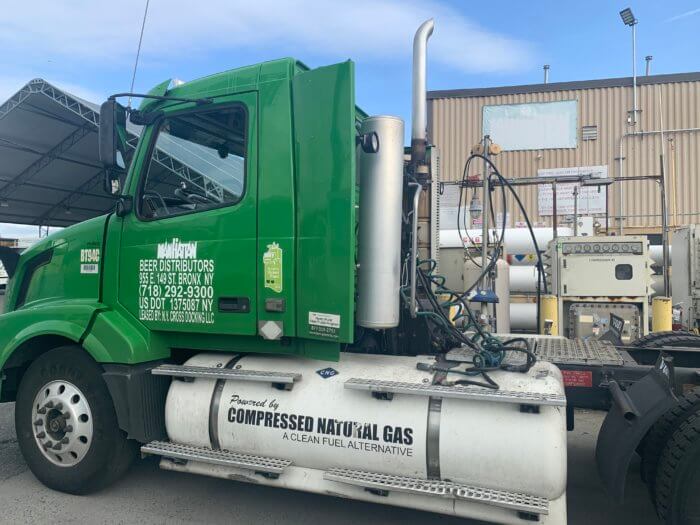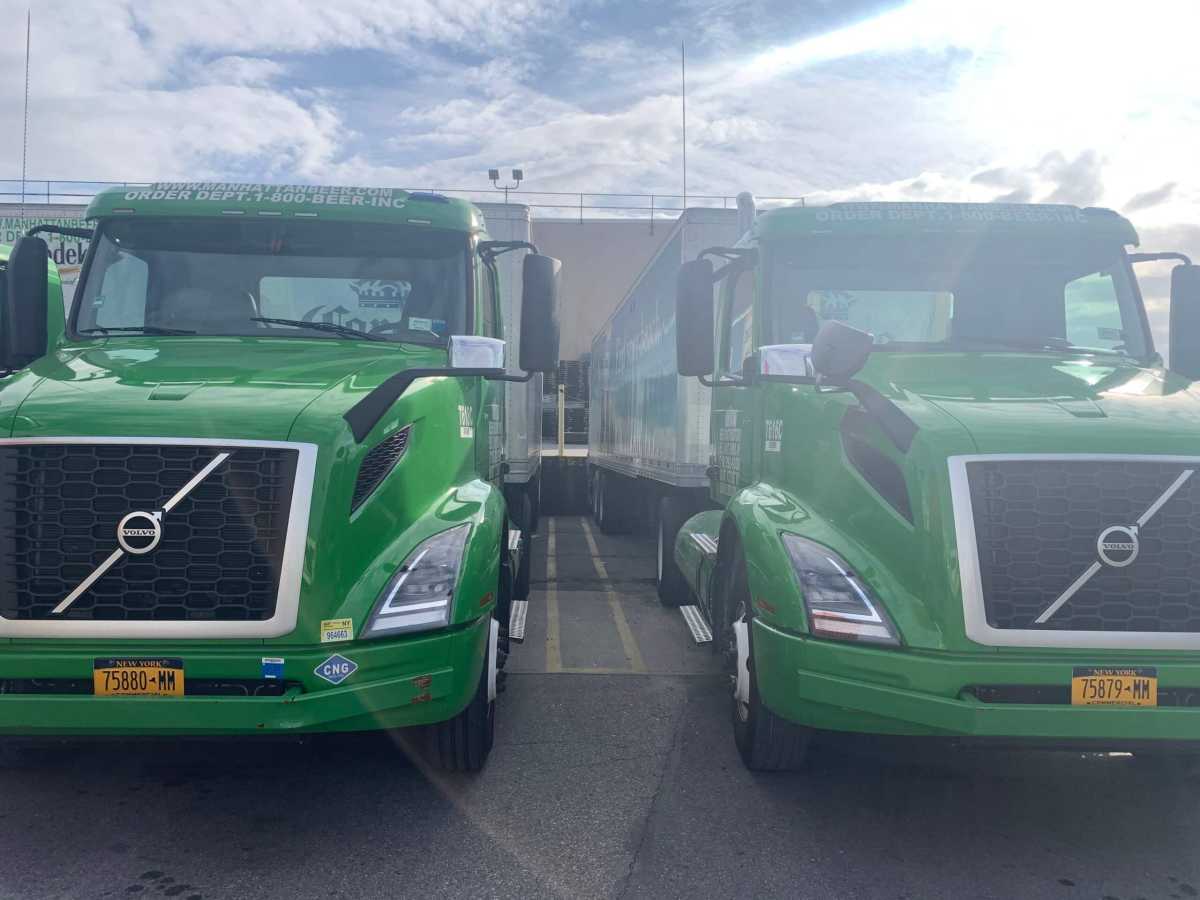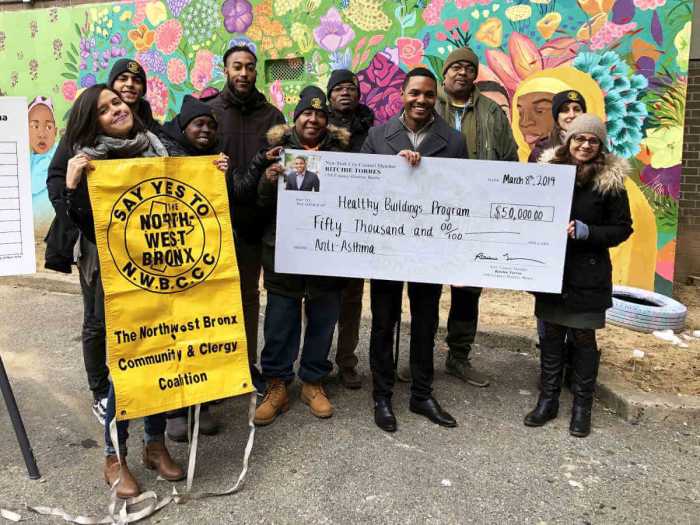As the south Bronx is known as asthma alley and the borough has the highest asthma rate in the city, one business in Hunts Point is helping to reduce air pollution while delivering alcohol.
Manhattan Beer, 955 E 149th St., is one of the few distributors in the area that have begun to transition to clean fuels.
Manhattan Beer invested in their first compressed natural gas (CNG) truck in 2001 and since has purchased 175 additional CNG trucks making up half of their fleet. A clean fuel standard can help other businesses make a similar switch and clean the air in Hunts Point, one of the most polluted areas of New York City.
Juan Corcino, senior director of fleet operations and sustainability, has been with Manhattan Beer for 23 years. He is proud to work for a company that cares about the environment.
“It’s (natural gas) has had a massive impact,” he said. “I know there’s a difference because I’m from the Bronx and if you went to Hunts Point 20 years ago you felt the pollution as soon as you walk in. Our goal is to be out of the diesel business.”
Corcino, 42, who has two children with asthma, knows full well about the importance of what Manhattan Beer is doing.

According to Corcino, the goal of the company is not just to make money, but to provide better lives for it s employees and the city.
“One thing I always look at is how to protect the kids,” he explained. “I believe that by doing my part this is how we can give back to our community.”
Today, only 20% of the Manhattan Beer fleet uses diesel, but the hope is to be all natural gas or electric within three years.
A case study released by the Clean Fuels NY Coalition shows the opportunity to reduce transportation emissions and create cleaner air for all New Yorkers.
A clean fuel standard would transform the fuels market from one that relies almost entirely on petroleum-based fuels, to a diversified one that uses a variety of clean alternatives. Producers of more polluting fuels pay for the development and deployment of clean alternatives, which drive down the cost so businesses like Manhattan Beer Distributors can make the full transition to clean fuels.
Julie Tighe, president of the New York League of Conservation Voters, spoke about the Clean Fuels NY Coalition and Manhattan Beer.
“We’re pushing the government to establish a clean fuel standard so we can encourage the use of electric vehicles and natural gas fuels as we transition our transportation sector,” Tighe said.
She commended Manhattan Beer for switching to natural gas and hopes more companies follow suit.
Tighe noted that the MTA uses electric buses; it could generate $10,000 a year per bus. She added that the MTA has committed to buying 500 electric buses.
“The idea is to get zero emissions by 2050,” she said. “We know this is something that not only would reduce pollution, but also particularly other pollutants that have a significant impact on health.”





















